Twórca, który zmienił oblicze kina - retrospektywa Kinga Hu na 17. Pięciu Smakach!
Podczas tegorocznego festiwalu widzowie zanurzą się w twórczości kolejnego wybitnego filmowca! King Hu zachwycał widzów w całej Azji, a jego wpływ na kino popularne jest globalny i trwa do dzisiaj. W retrospektywie znajdą się najważniejsze filmy mistrza w odnowionych cyfrowo kopiach - część z nich nigdy nie była pokazywana w Polsce.
Tajemnicze zajazdy pośrodku bezkresnego pustkowia, w których przecinają się losy wrogów i sprzymierzeńców, pełne zakamarków i intryg buddyjskie klasztory, bambusowy las, którego zielona gęstwina staje się areną efektownego starcia… Dumne, świetnie wyszkolone wojowniczki, barwne kostiumy i pomyślane jako balet choreografie walk, rozgrywających się w szerokich planach. Do tego polityczne rozgrywki, uniwersalne filozoficzne pytania i mistyczne doznania, a także szczypta slapstickowego humoru.
Jak wielu chińskojęzycznych twórców, King Hu zaczął karierę w legendarnej hongkońskiej wytwórni braci Shaw. Już jego drugi film, “Napij się ze mną”, był wielkim przełomem, innowacyjnie podchodzącym do najważniejszego chińskiego gatunku - wuxia. Są to, wywodzące się z literatury, opowieści o dzielnych wojownikach i wojowniczkach, przemierzających świat, by konfrontować się ze złem. Grająca tu Złotą Jaskółkę Cheng Pei-pei, przed karierą aktorską była baletnicą, co okazało się kluczowe przy realizacji sekwencji walk. Dzisiaj aktorka uchodzi za jedną z pierwszych prawdziwych bohaterek kina akcji w historii!
Hu był perfekcjonistą i niestrudzonym eksperymentatorem, wchodzącym w dialog z westernem i kinem samurajskim. Studiował historię, malarstwo i operę pekińską, kontrolował na planie każdy detal - od ustawienia kamery, przez fakturę kostiumów, aż po montaż. Aby tworzyć filmy o jeszcze większej i bardziej epickiej skali, wyjechał na Tajwan. Tam powstały jego najważniejsze filmy - “Dragon Inn” i “Dotyk zen”. Ten pierwszy wypełniał sale kinowe do ostatniego miejsca w całym regionie - od Korei po Filipiny, stając się popkulturowym fenomenem. Monumentalny “Dotyk zen” powstawał cztery lata i dzisiaj uchodzi za arcydzieło sztuki filmowej. W 1975 roku obraz dostał – jako pierwszy hongkoński film w historii! – nagrodę specjalną na festiwalu w Cannes.
Podczas trzydziestoletniej kariery, King Hu ukończył zaledwie 11 filmów, a wszystkie jego najważniejsze dzieła zaliczane są do wuxia. Hu spojrzał na ten gatunek okiem autora, poszerzając znacznie jego ramy, a jego twórczość stała się inspiracją dla kolejnych mistrzów. John Woo, Tsui Hark, Ang Lee, Zhang Yimou, Hou Hsiao-hsien, a nawet Tsai Ming-liang - wszyscy wychowali się na filmach Kinga Hu i jego geniuszowi zawdzięczają bardzo wiele! Dzięki cyfrowym rekonstrukcjom, widzowie kolejnych festiwali na świecie, począwszy od Cannes w 2014 roku, mogą na nowo zachwycić się niezwykłymi dziełami twórcy, którego należy traktować na równi z Kurosawą i Leone.
Retrospektywa prezentowana jest we współpracy z Ministerstwem Kultury Tajwanu i Tajwańskim Instytutem Filmowym i Audiowizualnym. Wszystkie filmy zostaną pokazane z odnowionych cyfrowo kopii.
Program retrospektywy Kinga Hu
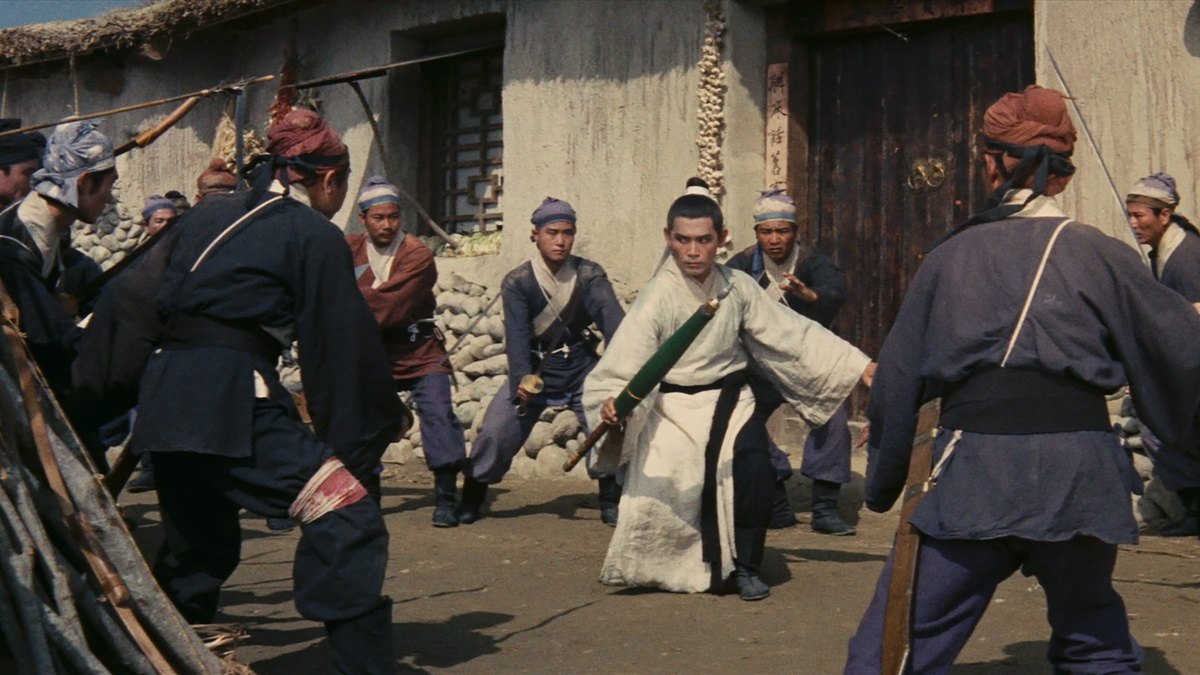
Dragon Inn
Longmen kezhan / Dragon Inn
Tajwan, Hongkong 1967, 111’
[także online]
W czasach dynastii Ming, pierwszy eunuch złego cesarza, Cao Shaoqin, doprowadza do egzekucji lojalnego ministra obrony, Yu Qiana. Dzieci Yu zostają skazane na wygnanie z Chin i ruszają w kierunku zachodniej granicy. Mimo to, Cao wysyła swojego najlepszego agenta, aby wyeliminował potomstwo ministra. Wszyscy spotykają się na granicy, w zajeździe Dragon Inn… Tajwański debiut Kinga Hu to dynamiczny popis akcji rozegrany w ograniczonej przestrzeni, który stał się oszałamiającym sukcesem i podważył filmową hegemonię Hongkongu.
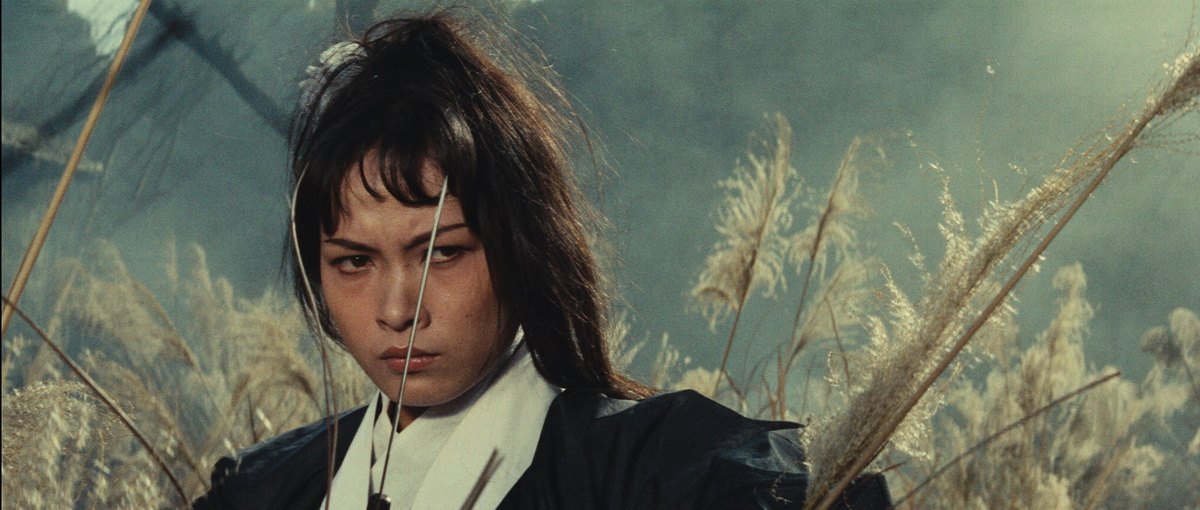
Dotyk zen
Xia nu / A Touch of Zen
Tajwan, Hongkong 1971, 200’
[także online]
Gu to ubogi nauczyciel, który żyje z matką w rozpadającym się domu. Pewnego dnia poznaje kobietę, która właśnie wprowadziła się do pobliskiego zniszczonego fortu. Piękna i tajemnicza panna Yang jest córką uczciwego urzędnika, który ujawnił oszustwa popełniane przez okrutnego eunucha Wei. Po nocy spędzonej z Yang, Gu postanawia pomóc jej w walce z wojownikami Weia. Wyrusza w podróż, która stanie się jego duchową drogą ku oświeceniu. Arcydzieło wuxia, mistrzowski film akcji ze słynną walką w bambusowym lesie i traktat filozoficzny w jednym!
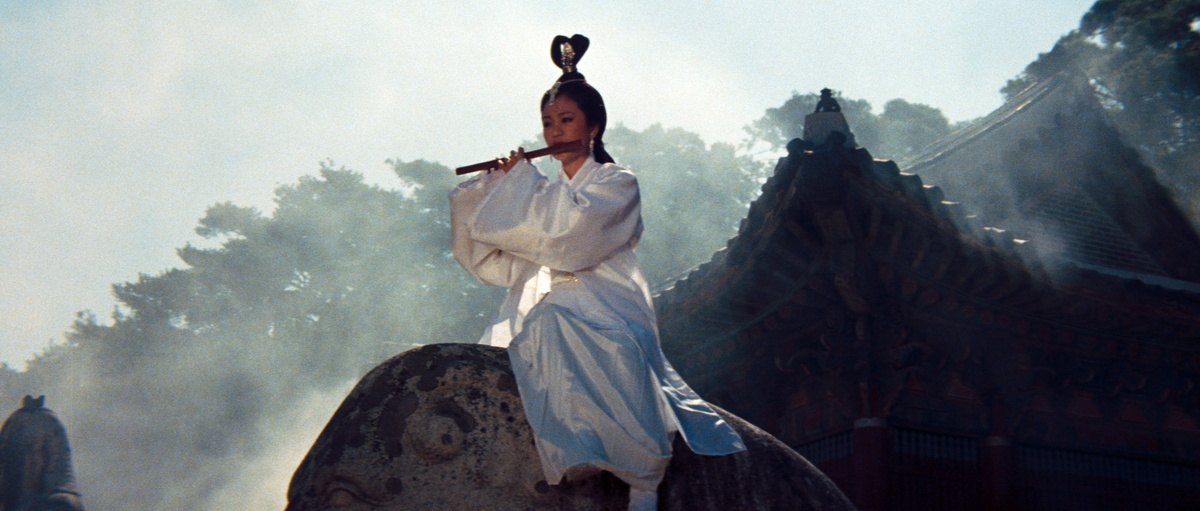
Legenda gór
Shan zhong zhuan qi / Legend of the Mountain
Tajwan, Hongkong, Korea Południowa 1979, 192’
[także online]
Młody uczeń Ho udaje się do górskiego klasztoru, aby skopiować buddyjską sutrę posiadającą moc kontrolowania złych duchów. Tu mężczyzna spotyka tajemnicze postaci - starszą kobietę i jej piękną córkę, które mają wobec niego pewien plan. Wkrótce w niezwykłej scenerii, nasyconej barwami bujnej przyrody, rozegra się dramatyczna walka dobra ze złem... “Legenda gór” to thriller i opowieść grozy w jednym, film o wyjątkowej urodzie (zdjęcia realizowano w Korei Południowej!) i mistrzowsko budowanej akcji, w którego fabule i rytmie warto się zanurzyć.
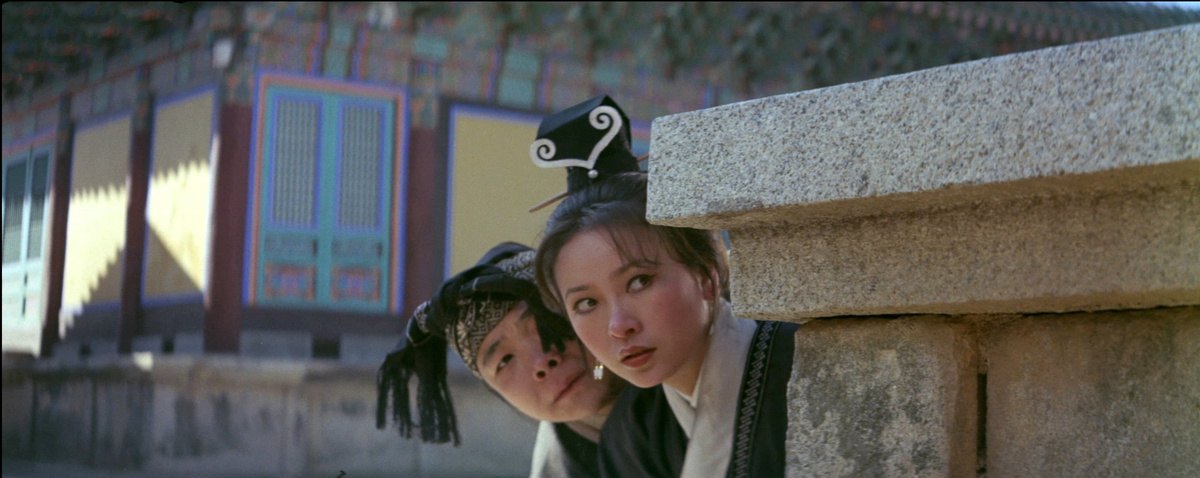
Deszcz w górach
Kong shan ling yu / Raining in the Mountain
Tajwan, Hongkong 1979, 120'
[także online]
Na zaproszenie umierającego opata, do pięknie położonego wysoko w górach klasztoru buddyjskiego przybywają dostojni goście. Wszyscy są dawnymi druhami duchownego, ale ich wizyta ma niecny cel. Każdy z nich ostrzy sobie zęby na znajdujący się tu stary manuskrypt… Zaczyna się niebezpieczna rozgrywka przebiegłych postaci, pełna chwilowych sojuszy, zdrad i kłamstw. Mimo że to lżejszy film mistrza, w którym pełen zakamarków klasztor staje się areną niemalże slapstickowych starć, nie brakuje tu epickich momentów i poważnej refleksji nad ludzką naturą.
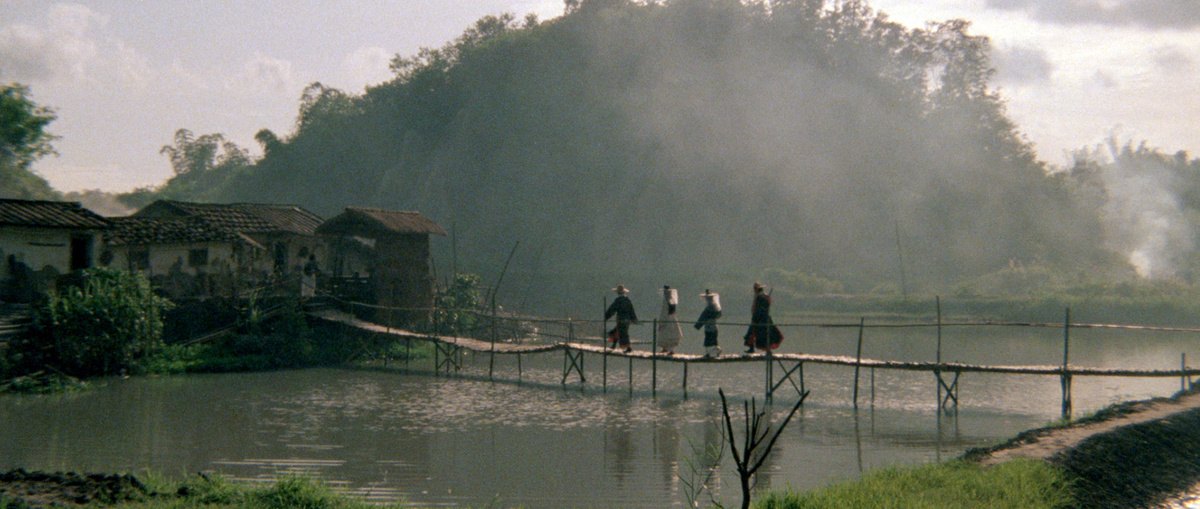
Koło życia
Da lunhui / The Wheel of Life
Tajwan 1983, 104’
[także online]
Nowelowy film, którego autorami jest trójka czołowych tajwańskich reżyserów - poza Hu, także Hsing Lee i Pai Ching-jui. To opowieści rozgrywające się w rożnych epokach, w których reinkarnuje się trójka tych samych aktorów. Powtarzające się motywy wracają w odmiennych dekoracjach, stając się buddyjskim traktatem o istocie miłości i zdrady, życia i śmierci.


